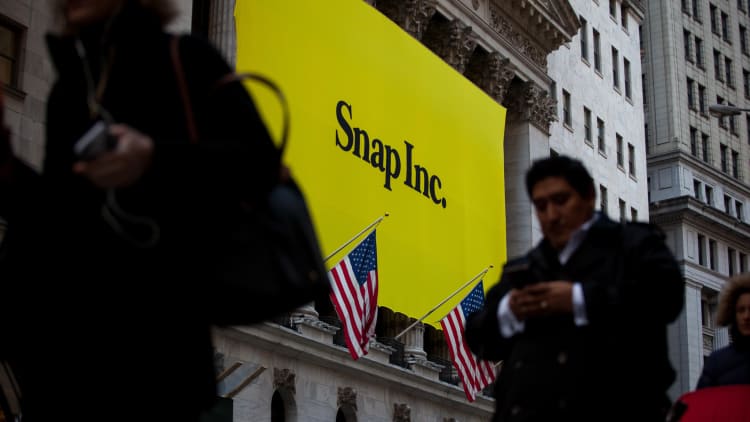shares popped more than 45 percent in their trading debut, beating Snap for the best first day IPO gains so far this year.
The stock was listed on the New York Stock Exchange under the symbol "MULE." The company priced its 13 million share offering at $17 a share on Thursday, above the expected range of $14 to $16.
Shares closed at $24.75 a share, after reaching a high of $25.92.
The San-Francisco software company raised money from investors like Salesforce Ventures and Lightspeed Ventures Partners.
The public offering comes on the heels of Snap's IPO, one of the biggest technology offerings in recent years. Snap, also backed by Lightspeed, rose 44 percent on its first trading day earlier this month.
Tweet: Mulesoft at New York Stock Exchange
The Mulesoft IPO was arguably more important for Silicon Valley than Snap because of the number of mid-market enterprise cloud companies that people don't necessarily get excited about unless Mulesoft does well.
"Investors want to know that there's a long-term growth trajectory for the company, they want to know that there's a big market and market opportunity, and if you have those two things and you're showing that you're executing as a company then you usually can go forward," said Mulesoft CEO Greg Schott on "Squawk Alley."
The fast-growing, money-losing enterprise software company provides a platform to help companies stitch together disparate software applications, data, and devices. Customers include The Coca-Cola Company, McDonald's, Salesforce, Spotify, Unilever, and Bank of America.
MuleSoft lost $50 million on $188 million in revenue in 2016, but its losses shrank from $65 million in 2015, and its revenue grew 70 percent from the previous year, according to its IPO filing. So investors will have to bet that trend will continue.
— Reuters contributed to this report.
Watch: Snap IPO's slow start




